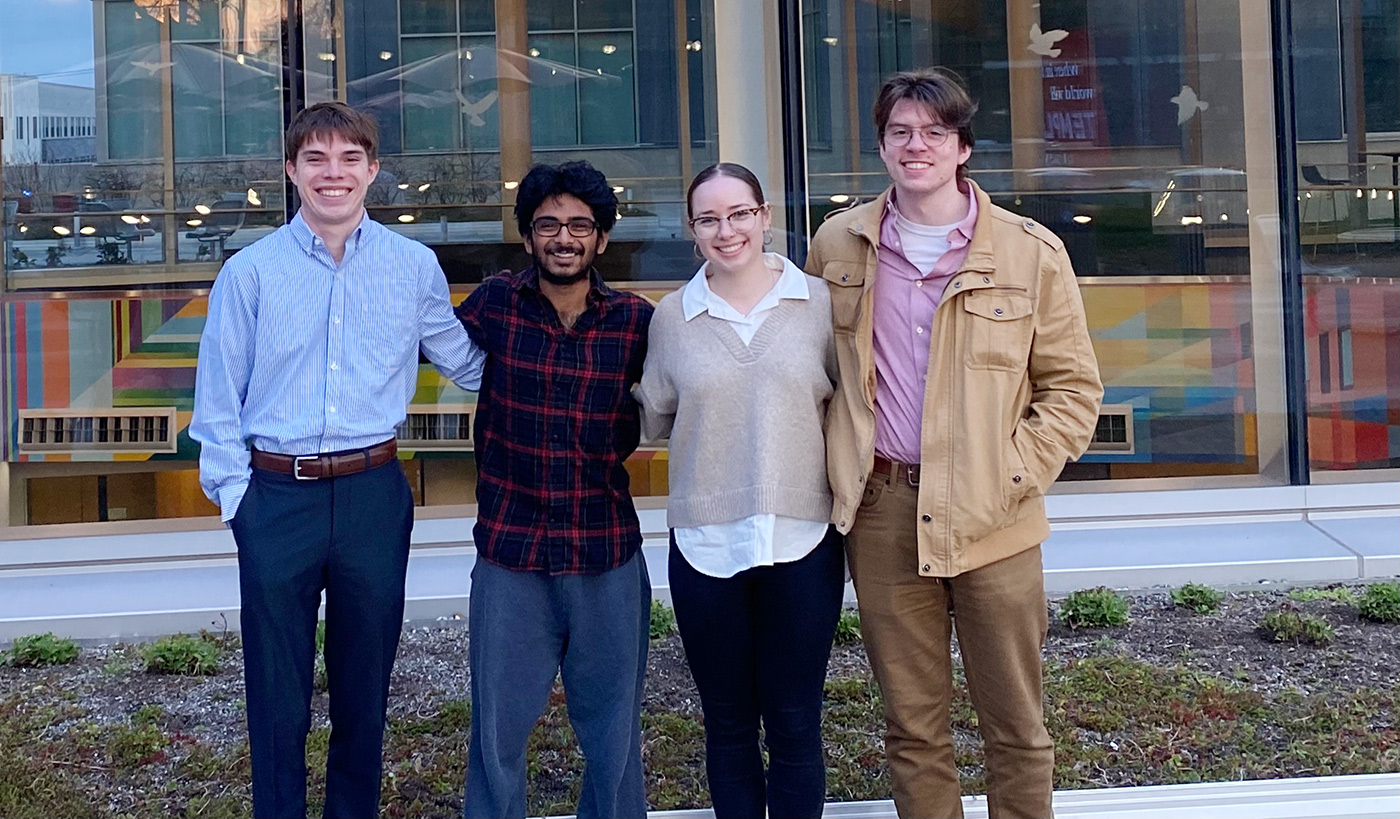A group of students from Temple University is headed to Washington, D.C., on April 12 to compete as finalists in a competition that will hone their skills in economic policy and decision making at the highest government levels.
The Fiscal Challenge is a national competition that aims to increase student participation and interest in economic and fiscal policies through experiential learning. Hundreds of undergraduates participate every year, with only six teams making it to the end.
In previous years, finalists came from universities such as Princeton or Notre Dame. This year, four Temple students made it to the final round of the competition.
Karina McKenna, a class of 2024 economics major at the Fox School of Business, explains the preparation that she and her fellow Owls, Matt Drayton, Zach Somogyi and Akash Banerjee, have made for the event.
How did you prepare for the competition?
Preparation was intense. We started preparing mid-January and the first-round submission was due in March. We had to balance this project on top of our other responsibilities like school and work.
 Learning in depth about real policies and programs such as Social Security, Medicare, taxes and trust funds was very important. Many of these policies are detailed and confusing, so research was important for us to understand what we were talking about. We also talked to family members, friends and professors for firsthand insight.
Learning in depth about real policies and programs such as Social Security, Medicare, taxes and trust funds was very important. Many of these policies are detailed and confusing, so research was important for us to understand what we were talking about. We also talked to family members, friends and professors for firsthand insight.
It was very difficult at times because this wasn’t a project for a grade or compensation; we were solely doing it out of passion. We spent all spring break preparing, finding time wherever we could to work together. We spent hours each week conducting policy research to discover the biggest problems our society is facing. We used current research and policy proposals as a launching point to see what experts in the field have proposed as viable solutions.
We also had to model the impacts of our policies to calculate the reduction on the Debt/GDP ratio. That required meticulous attention to detail. We spent hours checking and readjusting our model to make it more accurate. As we approached the deadline, we had to construct a slideshow and practice our presentation.
What was the competition itself like? Was it like anything you’ve done before?
The first-round submission was an online video and the final round will take place on April 12 in Washington, D.C. This is my first time participating in any sort of case competition, but I treated it like a research assignment. I have never modeled anything as intense as this before, so I leaned on and learned a lot from my teammates who had more experience in this field. In our economics and business classes you hear a lot about policy, but you don’t dig into the details of it, let alone creating and modeling an original policy.
How does it feel to have made it to the finals?
It feels incredible, I’m so proud of us to have made it to the final round. We certainly put in the hours and deserve this, but we were not at all expecting it. When I found out the results, I was shocked. I was so thrilled and proud that our hard work paid off, I was screaming and celebrating with my friends. The teammates and I celebrated that night and were able to take in the moment.
Is there anyone who inspired you to join the competition?
Our whole team, which also includes Matt Drayton and Zach Somogyi, owes it to our team leader Akash Banerjee. He is the one who found out about the competition on a whim, was brave enough to pursue it and put together a team of brilliant minds. Akash is one of my closest friends, and to share this moment together in recognition of our policy dreams and efforts is incredibly rewarding. I would also like to acknowledge economics professor Michael Leeds, who has advised us through the competition process.
What are your career goals after you graduate?
We took on this competition to experiment within the policy space before graduating. Our ideas of promoting an economy of well-being and incorporating more humanistic policies into legislation have been our driving force.
Post-graduation, I hope to be able to combine my passion for economics and policy with my appreciation for art and education. I want to work to bring greater economic appreciation to the arts, increase arts access, interdisciplinary learning and after school programs for kids and teens. I hope to collaborate with people to learn more about the “well-being and creative economies” while educating others either through art training or on the benefits of an artistic education overall. The arts have profound impacts on individual and communal life, yet it is widely overlooked and underfunded.
Overall, I was truly inspired to enter this competition because I am passionate about how policies impact our daily lives. So, as I head to the Fiscal Challenge finals, I know that I have already succeeded.

